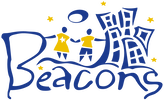Current Projects
MNDOT Operations Division Recruitment and Retention Strategies
The WDRL is leading the applied research and consulting project under a contract between the UMN (through its Center for Transportation Studies) and the Minnesota Department of Transportation Operations Division. The project has a budget of $200,000 and will be completed between October 1, 2023, and October 1, 2024. This effort is led by Professors Ken Bartlett and Alexandre (Sasha) Ardichvili, with the participation of three graduate members of the Lab. The Lab will assist MnDOT Operations Division in identifying critical issues in transportation and develop research, education, and outreach programs. The project will involve, among other things, the development of workforce planning strategies, and research, data analysis, scenario planning, and assessment of current and future state effectiveness on workforce strategies.
Northside Job Creation Team
Stephanie Sisco, Principal Investigator
Dr. Stephanie Sisco is currently collaborating with the University of Minnesota Urban Research and Outreach-Engagement Center (UROC) to explore and evaluate new resources, strategies, and possibilities for the Northside Job Creation Team (NJCT). In 2012, this diversified group of stakeholders joined together to bring 1,000 jobs to North Minneapolis. The NJCT advocated specifically for liveable-waged employment opportunities that offered benefits for Northside residents and imposed the least amount of environmental constraints on Northside neighborhoods. They achieved that goal by 2019 and exceeded their expectations. The incredible accomplishment commissioned by the NJCT has led many to wonder what other possibilities can be realized with their shared vision, dedication, and joint resources. Dr. Sisco is leading this project and representing the CEHD Workforce Development and Research Lab to explore these curiosities through workforce development analysis and mix-method research.
Advanced Rehabilitation Research Training (ARRT) Fellowship Project
John Bricout, Collaborator
Quinn Oteman, Graduate Student Investigator
The project involves the design and implementation of an innovative Postdoctoral training program for four individuals with a STEM background (Engineering or Computer Science). The Fellows will focus on advanced disability and accessible technology policy related to community participation and employment, and information and communications technology (ICT) policy pertaining to accessibility and usability for individuals with disabilities. The ARRT Fellowship offers a highly selective, intensive two-year cohort training program preparing Fellows for leadership roles enhancing opportunities for people with disabilities in community participation, employment, and ICT access, using inclusive advanced disability and technology policy tools and knowledge. Fellows are currently being recruited, following a successful virtual workshop, and an ongoing scoping study of cutting-edge inclusive disability and technology policies. There will be additional empirically-based workshops, as well as hybridized workforce development training, together with interdisciplinary research collaborations, presentations, and publications. (UMN Component: 3/1/22-2/31/23)
Granting Agency: National Institute on Disability and Independent Living and Rehabilitation Research, (Georgia Institute of Technology) PI, Nathan W. Moon, Ph.D. (6/1/20-5/31/25)
Completed Projects
The two winners of the 2023 WDRL Student Challenge competition have successfully completed their projects.
Ashley Watson is a PhD Candidate in Organizational Leadership, Policy, and Development. She has worked with the Mandela Washington Fellowship (MWF) since 2021. In collaboration with Selemani Makwita, a 2022 MWF Fellow and Executive Director of Action for Democratic Governance (A4DG), Ashley focused on barriers to policy implementation of a recent ruling that allows young mothers and pregnant girls in Tanzania to return to school. On February 17th, they hosted a Stakeholder’s Workshop involving girls and young women, school leaders, and local level government officials to develop a collective advocacy agenda to address the re-entry policies targeting out-of-school young people.
Hyerim Cho, a doctoral student in the HRD program and a graduate member of the WDRL, consulted with the UMN Tourism Center to help revamp the Growing Tourism Leadership Webinar Series. Her work involved conducting interviews with past and prospective program participants and trainers to determine the training needs of potential participants in the webinar series. In addition, Hyerim studied best practices of similar centers around the country. Based on her field research, she developed a strategy to enhance the program in terms of content and structure. The project was finalized in June 2023, and the Director of the Tourism Center, Dr. Xinyi Qian, expressed high level of satisfaction with the project results.
Three Research/Consulting Projects with Non-profit Organizations
Project with CompTia Identifies Best Practices for Tech Apprenticeship Programs
Ana Carolina Rodriguez, Graduate Member of the WDRL, and Lauren L. Jones, both PhD students in the HRD program, partnered with CompTIA to investigate best practices for technology-related apprenticeship programs. CompTIA is a non-profit organization that offers education, training, certifications, advocacy, philanthropy, and market research to support the development of the IT ecosystem. Tech apprenticeship programs can address a crescent demand for tech professionals in the workplace and contribute to developing a more diverse workforce by tapping into underexplored populations. The project included interviews with key stakeholders and secondary data collection. The outcome was a report containing actionable strategies organizations have considered effective for the success of their apprenticeship initiatives.
Student Researchers Help Address Food Insecurity Challenges in Twin Cities
Taylor Cavallo Siering (Graduate Member of the WDRL) and Justine Mishek, PhD students in the HRD program, worked with PRISM, a non-profit organization, inclusive of a food shelf, that supports the needs of individuals within the Twin Cities suburbs. Food shelves are a central resource for those experiencing barriers to meeting basic needs and due to the pandemic, more individuals are experiencing challenges related to food insecurity and poverty. However, as a result of the COVID-19 public health emergency status ending, there are fewer benefits available and more individuals than ever are utilizing food shelves. In this project, the student researchers explored the connection between food insecurity, poverty and intersectionality, as food insecurity and poverty have a profound impact on those who hold marginalized identities, specifically related to gender, ability, age and race. The researchers also explored how PRISM is well positioned to focus on supporting these individuals and others who face challenges given their organizational emphasis on contextualizing food insecurity as an issue that involves other realities than just food.
Student Research Team Analyzes Transformational Change at Daily Work
Daily Work is a non-profit organization in the Twin Cities that assists over 200 job seekers annually in finding job placement. The primary demographic they work with is low-income immigrants residing in Ramsey County, which has the 4th highest poverty rate in Minnesota. The work done by Daily Work goes far beyond job placement, utilizing relationship building and a holistic approach intended to develop the whole person. Bethany Brausen and MJ Shim, PhD students in the HRD program, were asked to lead a project assessing the transformational change process experienced by those involved in Daily Work. Qualitative data was collected through semi-structured interviews with the 4 main groups of people within Daily Work: job seekers, social work interns, volunteers and staff members. Findings from the project showed how relationship building and connection created transformational change areas for each category of people. Including but not limited to: increases in mental health and wellbeing, a broadened social/cultural understanding, higher integration into society and personal development.
UMN Tourism Center
Panpan Zhang, Graduate Student Investigator
The project aims to help the UMN Tourism Center to develop the At Your Service Customer Service Training program. Panpan Zhang, a graduate research member of the WDRLab, worked with UMN Tourism Center leaders and trainers of the program to reshape the training program goals and make the training content more culturally accessible to participants. Based on the findings of literature reviews on cross-cultural and customer service training, respectively, this project resulted in several recommendations to differentiate this customer service training program from others by incorporating the development of cross-cultural capabilities. More information about the training program.
YMCA of the North- Beacons Program
Ana Carolina Rodriguez & Quinn Oteman, Graduate Student Investigators

In collaboration with the YMCA of the North’s Beacon Program, graduate research members of the Workforce Development and Research Lab, Ana Carolina Rodriguez and Quinn Oteman, developed a research brief to highlight themes in the literature about how adults can support high school students from underrepresented and low-income backgrounds to make a successful transition out of high school and into the workforce or post-secondary education. This research brief will be used by the YMCA of the North Beacon’s program practitioners, staff and partners of the Beacon’s high schools, and funders who financially and politically support the YMCA Beacon program.
Sustainability Transition in the Making: the Case of the World Heritage Site Serra da Capivara National Park, Brazil
Silvia Casa Nova & Alexandre Ardichvili, Co-Principal Investigators
Diele Lobo & Ana Carolina Rodriguez, Graduate Student Investigators

This project investigated sustainability transitions by integrating research in social-ecological systems, entrepreneurship, human resource development, and gender. The project was conducted in the World Heritage Site Serra da Capivara National Park, in Brazil, and was organized into three research streams: 1) Social entrepreneurship and sustainable heritage tourism in institutional voids; 2) Human Resource Development (HRD) in support of the UN sustainable development goals; and 3) Social entrepreneurship, women’s empowerment, and gender equity. More information about the project and publications.
Workforce Planning and Human Resource Development Strategies for Minnesota’s Public Transportation Agencies
Kenneth Bartlett & Joshua Collins, Co-Principal Investigators
The objective of this project was to support Minnesota’s public transportation agencies in reviewing its hiring policies and workplace culture and making recommendations to strengthen the pool of qualified applicants and build a healthy workforce pipeline for the future. The project resulted in several recommendations to enhance the recruitment process and increase on-the-job satisfaction. See the full description on the Minnesota Department of Transportation website.

